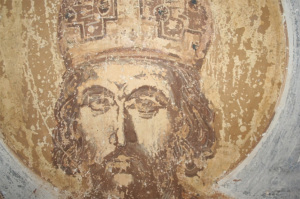Should Evolution Theory be Presented in the Textbooks?
State Board of Education is deciding on whether Biology textbooks should include criticisms of evolution theory.
In Texas, religious activists and the mainstream scientists are in conflict, fighting over coming up with alternatives in teaching theory of evolution in public schools.
The State Board of Education will meet on Thursday and Friday decide on whether or not there needs to be change made in Biology textbooks regarding evolutions, with the consideration of the changes submitted by 11 publishers.
According to Associated Press, “religious activists and proponents urged publishers to revise some of the 10th-grade books and want the board reject others, saying they contain factual errors concerning the theory of evolution. Most mainstream scientists assert that Charles Darwin's theory of evolution is a cornerstone of modern research and technology.”
"There's a bait and switch going on here because the critics want the textbooks to question whether evolution occurred. And, of course, they don't because scientists don't question whether evolution occurred," said Eugenie Scott, executive director of the National Center for Science Education.
About 60 biologist across the country feel it’s necessary to talk about both sides of the issue on origin of life, along with several religious leaders who oppose teaching evolution.
Bruce Chapman, president of the Discovery Institute, a nonprofit think tank in Seattle, urges that it’s important to present both strength and weaknesses of evolution theory.
"We think there's much more to be done, of course, and our proposal to the board is that further changes should be made," he said.
Steven Schafersman, president of Texas Citizens for Science, said there are no weaknesses in current textbooks' explanation of evolution.
The Discovery Institute has referred to a theory called intelligent design: a belief that life did not evolve randomly but progressed according to a plan, which is seen as rooted from Christianity by many people, violating the rule of separation of church and state. No book on the mainstream market presents that theory.
"It says that the theory of evolution can't explain the diversity of life on this planet and that there must have been a designer," Samantha Smoot, executive director of the Texas Freedom Network, said. "That is a very valid and commonly held religious perspective, but not one that is upheld by scientific evidence."
The Discovery Institute has maintained that its arguments have no religious foundation, but Smoot disagrees.
"The concept of intelligent design was crafted specifically to get around legal prohibitions against teaching religion in public schools," she said. "And as long as proponents of intelligent design deny that they're referring to God when they talk about the designer, they hope to be able to pull this off."
At least one publisher has submitted changes in line with critics' recommendations.
Holt, Rinehart & Winston has submitted a change that directs students to "study hypotheses for the origin of life that are alternatives" to the others in the book. Students also are encouraged to research alternative theories on the Internet.





























